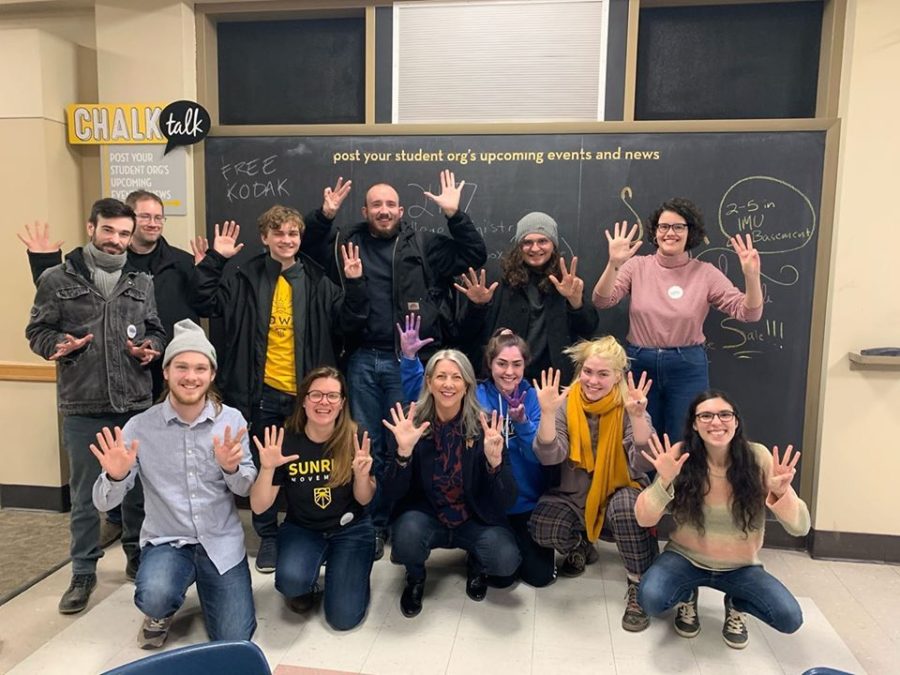Iowa Senate Democratic candidates turn to other strategies to reach voters
May 17, 2020
The Iowa Senate Democratic candidates rely on canvassing and town halls to reach voters, but due to COVID-19, campaign teams have turned to other strategies.
Since the pandemic, the Democratic Party primary is scheduled to take place on June 2 through absentee voting by mail. This primary will determine which of the four Democratic candidates will run against incumbent Joni Ernst in November.
The Democratic candidates are; Kimberly Graham, Theresa Greenfield, Michael Franken and Eddie Maruo.
According to a recent survey done by Public Policy Polling, Greenfield leads with 43 percent of Iowan’s likely to vote for her, Franken 12 percent, Graham 4 percent, Maruo 4 percent and 36 percent undecided.
“Iowa is a caucus state, people are used to candidates coming and shaking hands but we can’t do that anymore,” said Tim Nelson, chief strategist for the Kimberly Graham campaign.
Campaigns have used social media to reach Iowan voters in ways that they are not used to being reached.
“One way we have been reaching voters is by doing town halls that are open and free to the public, we do those via zoom, call in and skype,” said Kimberley Boggus campaign manager for Michael Franken.
Another way campaigns have been reaching Iowans is through their volunteers. Campaigns have been using phone banking to access registered Democrats numbers and reaching out to them via text and phone call.
“We’ve been holding state-wide virtual training sessions for our volunteers, making sure we are still connecting with voters while keeping Iowans out of harm’s way,” said Izzi Levy, press secretary for Theresa Greenfield.
Volunteers have been working from home not only talking to voters about candidates but also checking in with voters on how they are doing during the COVID-19 pandemic.
“Being there to communicate is important, we have an amazing volunteer team that has been texting Iowa voters and following up on them,” Nelson said.
Connecting with college students has posed as a challenge for candidates due to many campuses being empty.
“Our campaign has been looking to connect with college students in any way we can virtually, phone calling or if we can do it safely in person,” Eddie Maruo said.
Campaigns have been asking Iowan voters to tune into their debates on the Iowa PBS. Iowa PBS has hosted online forums and will host its first in-person debate Monday night. Iowa PBS is planning on hosting more debates as the primary gets closer.
“I do believe that some people will wait until after the first or second debate to commit to a candidate,” Boggus said.
Changing strategies to reach voters is not the only change campaigns are dealing with. Informing voters to vote by mail and send in a ballot request form is another thing campaigns are trying to reach voters about.
“I think there will be some newer voters who will show up because it is more convenient to vote from home,” Maruo said.
Absentee ballot request forms are due May 22nd and voting ballots are being sent out and voting Ballots are due June 2nd. Campaigns are encouraging Iowans to vote by mail in order to stay
“We are encouraging voters to not go out and vote on June 2nd it is not worth risking your life to vote, vote by mail,” Nelson said.

















